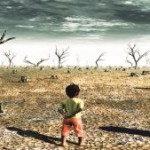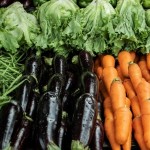February 11, 2019 Stuart Gillespie, Senior Research Fellow, IFPRI A new report by the Lancet Commission on the Global Syndemic of Obesity, Undernutrition, and Climate Changedelivers a powerful, incisive analysis of the drivers of those overlapping worldwide problems with some long-overdue and hard-hitting recommendations. The starting point is a recognition that malnutrition in all […] Source: IFPRI Egypt Country Office
Recurrent climate events are a contingent liability in three MENA countries
Dorte Verner - Lead Agriculture Economist, World Bank
Findings from three new World Bank reports provide a strong reminder to build resilience to extreme weather events. Climate change, El Niño Southern Oscillation (ENSO) and other recurrent climate events are making already water-scarce countries in the Middle East and North Africa more vulnerable. Adverse climatic impacts on agriculture – including on wheat and other rainfed crops that are vital for food security -- is a growing liability for Lebanon, Morocco and Tunisia, with projected impacts on household and national economies. Source: IFPRI Egypt Country Office
Two lakh people likely to migrate from coastal areas
Rise in sea level has brought about increased soil salinity that is likely to force nearly 200,000 coastal residents to migrate inland in search of alternative livelihoods, according to a landmark study by researchers at the International Food Policy Research Institute (IFPRI) and the Ohio State University. The study examines, for the first time, the […] Source: IFPRI Bangladesh Country Office
Looking to 2030: Policy simulations using a multi-market model for Malawi
In the early 1990s, IFPRI developed the International Model for Policy Analysis for Agricultural Commodities and Trade (IMPACT) to help sustainably address long term policy challenges in reducing hunger and poverty and in protecting natural resources. The IMPACT model has been continually expanded and improved to better inform the tough choices decision makers and researchers >> Read more Source: Malawi Strategy Support Program
- « Previous Page
- 1
- …
- 20
- 21
- 22



